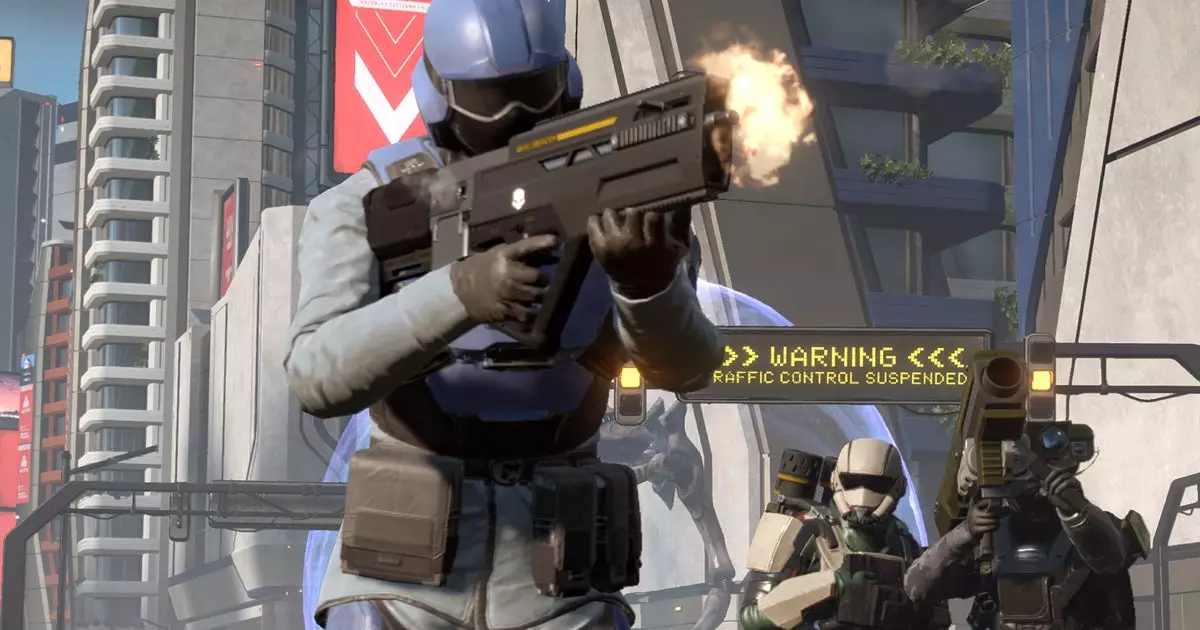The recent climax of the Helldivers 2 campaign, marked by the Heart of Democracy update, serves as a compelling case study in the intersection of gaming, community engagement, and cross-cultural collaboration. The narrative surrounding the defense of Equality-On-Sea, a fictional city representing Shanghai, illustrates not just a fictional victory against an extraterrestrial invasion but also highlights the profound impact that gaming can have on social interactions between diverse player demographics. Players collectively thwarted a formidable Illuminate invasion, but this victory transcended mere gameplay; it ignited discussions that reached the local news in China.
In the context of a global audience, this localized victory in a video game reflects the symbolic bond between Chinese and overseas players. The news segment aired by Kanka News’s Good Morning Shanghai encapsulated this phenomenon, celebrating the teamwork that unfolded in a virtual space, promoting a narrative of unity amongst players divided by geography. The enthusiasm exhibited by both Chinese and non-Chinese players is a testament to the shared goals that gaming fosters, challenging the often impenetrable barriers of culture and language.
Community Frustrations and Controversies
However, the aftermath of the defense of Equality-On-Sea was not without its share of frustrations. A vocal minority of players resorted to review bombing, primarily due to dissatisfaction with their inability to reach the coveted 100% control of the city. This issue traces back to a mix of gameplay design, translation challenges, and perhaps a misunderstanding of the real-time war dynamics in Helldivers 2. Many players seemed to believe they could clinch complete control of a mega city during ongoing battles, only to be met with the harsh reality of a perpetually invading force.
The fallout reveals an interesting tension within the game: players expect an agency that reflects their efforts in a dynamic world, but the developers chose a different path, leading some to feel that the game was controlling their narrative rather than allowing for a player-driven outcome. This conflict between player expectation and game design prompts critical questions about player agency in modern gaming—questions that go far beyond Helldivers 2.
The Power of Gaming Beyond Borders
One of the unforeseen byproducts of the Helldivers 2 event was the way it showcased the power of gaming as a medium for dialogue and cultural exchange. In a world often entangled in geopolitical disputes and misunderstandings, a virtual battlefield emerged as a space where players collaborated, celebrated victories, and experienced shared frustration. The fervor surrounding Equality-On-Sea’s defense serves as a microcosm of how games can galvanize communities, sparking conversations in places like the Helldivers subreddit, where players analyzed the implications of their shared experience.
This brings us to a vital consideration for game developers: the localization of video games is not merely a linguistic process but a cultural one. Understanding the emotional stakes players attach to the game can transform a seemingly simple victory into a rallying point, embracing both competition and camaraderie across borders. It’s time for developers to recognize that the communities they cultivate can profoundly affect player engagement, and thus game success. The saga of Helldivers 2 is a perfect illustration that transcends gaming, reminding us of our shared humanity, even amidst the chaos of intergalactic warfare.


Leave a Reply